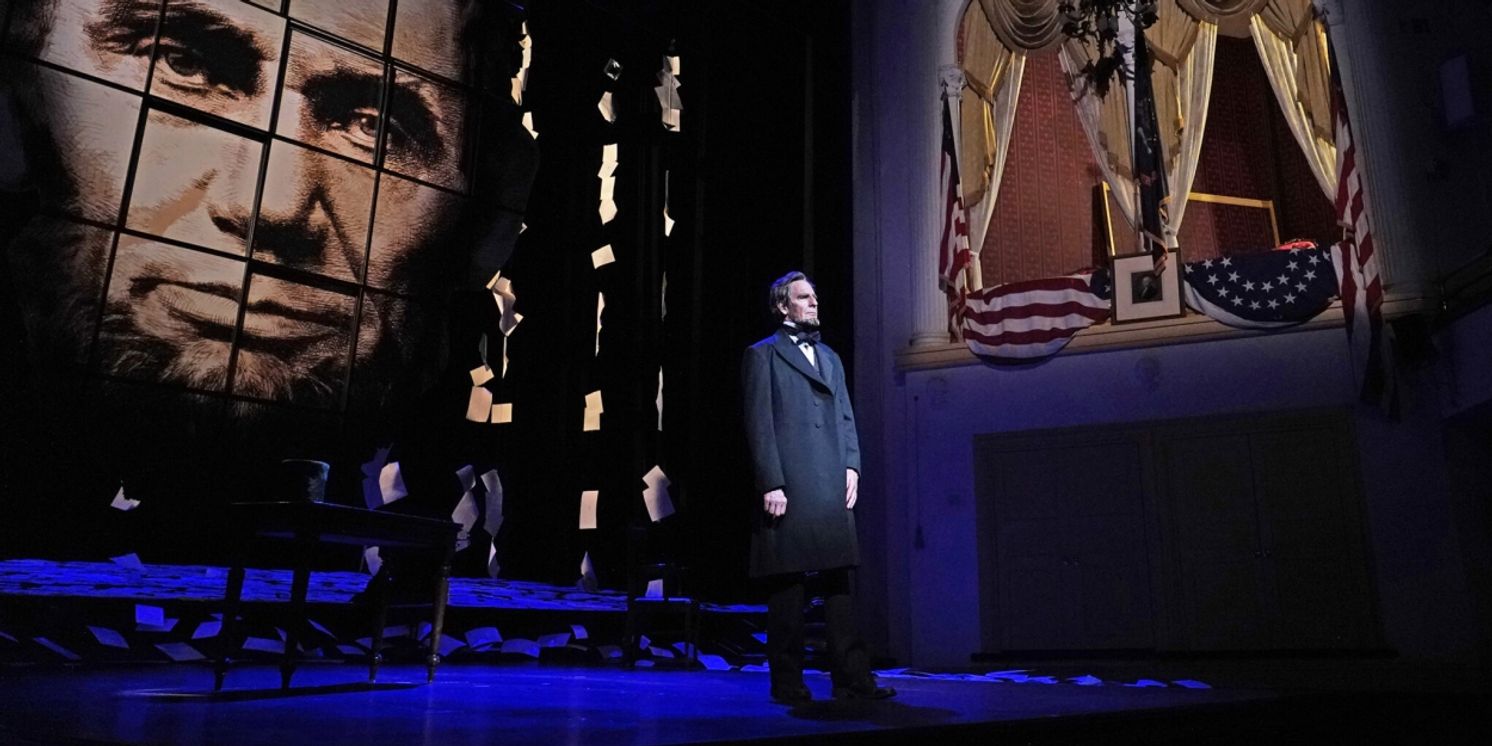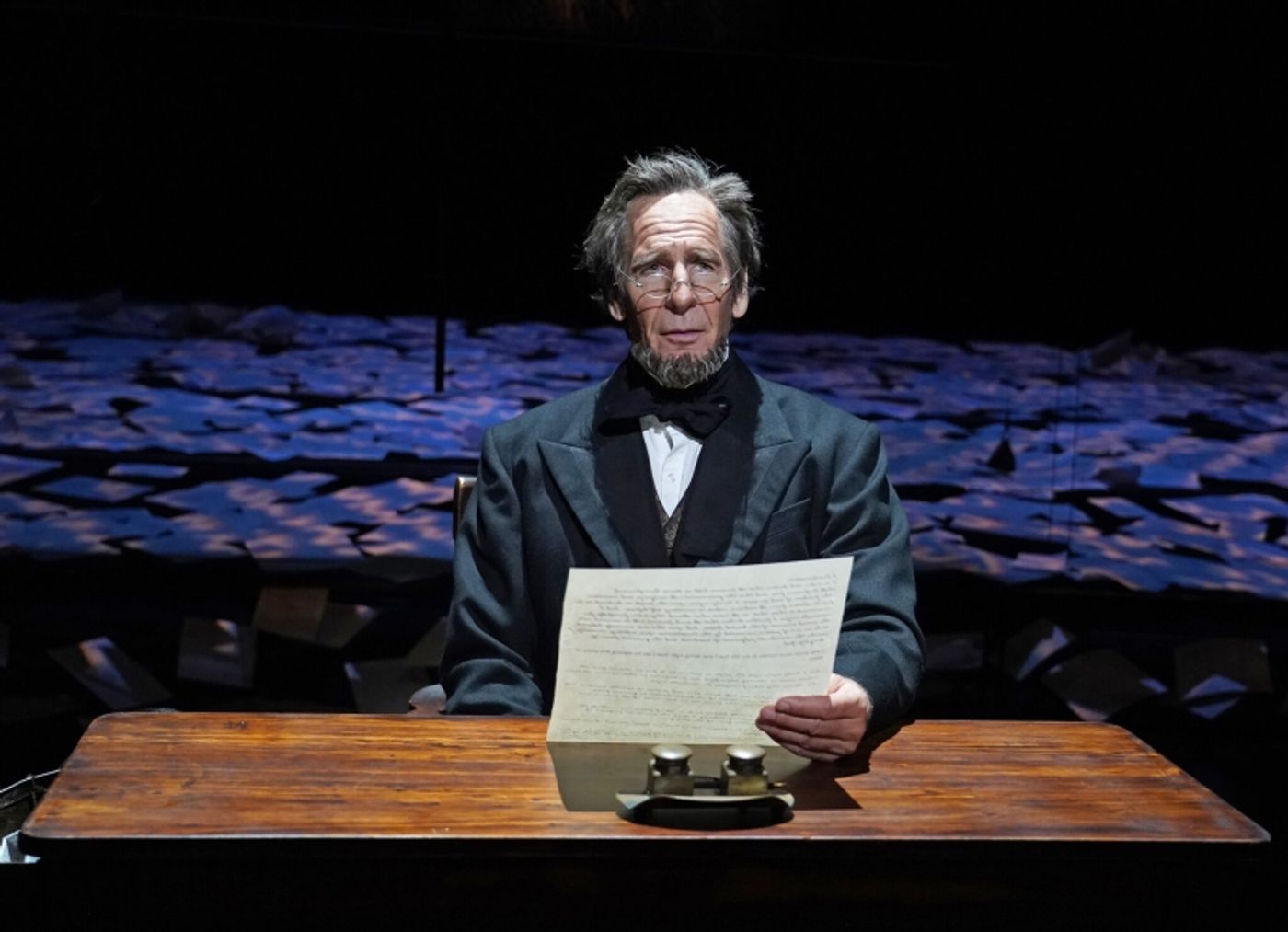Review: MISTER LINCOLN at Ford's Theatre
The production runs through October 13th

Washington DC is a city deeply steeped in our nation's history, which is no more evident than at Ford's Theatre. The theatre opened in 1861 and no more than four years later 16th President, Abraham Lincoln, was assassinated while attending a show. In the many years since then, the building has become a historical site, honoring the memory of one of our most famous Presidents. There's a museum, a gift shop, and across the street you can tour the house where he died. So it may have come as little surprise when Ford's announced they were mounting a production of Herbert Mitgang's Mister Lincoln.
Mister Lincoln is a one-man show detailing some of the most important moments in the 16th President's life, with an overarching frame/plot of his work around "ending" slavery. Scott Bakula, well-known television and film actor, took on the monumental (literally) role of representing the President in this 90-minute production, which is "rooted in historical records."
The show takes place in Lincoln's psyche. It is suggested that in "real life" it is happening directly after his assassination, and this is, perhaps, his life flashing before him. The space of the piece is mutable, befitting of an abstract memory/pre-death locale. The stage was covered mostly in innumerable pieces of paper. Scenic Designer Misha Kachman, in trying to achieve director José Carrasquillo's goal of having the show feel like a "museum of Lincoln" opted for these papers to be the artifacts of the musuem, referencing Lincoln's extensive writings. It is a compelling image, and practically satisfying, as throughout the show Bakula picks up pieces of paper here and there as props, and simply discards them back into the pile when done with them. These papers are accompanied by period furniture, but more importantly a massive, fractured portrait of Lincoln, hanging above Bakula the entire show. It's evocative. As we watch history, it watches us back. The fractured nature of it too, suggested, as the show does, that history and memory are fallible, broken things. It's a simple yet apt set. One major transition happens near the end of the show, where some of the papers rise toward the ceiling, which was amusing and lightly stirring. This was paired with another fractured portrait of Lincoln, lowered from the sky over the original portrait, the two together completing the visage of the President. This, while symbolically relevant to the piece, felt a bit on the nose. Lincoln is already alive through Bakula on stage, any additional direct representation of his likeness is not needed.
The effective design was extended particularly to the sound, for which Sarah O'Halloran is responsible. The sound of the show was the second player in the piece, the supporting actor in ways. Literally in some cases, when voices of other historical figures emerged from the speakers briefly, but more importantly, in what it did to immerse the viewer. The sound colored the world Bakula was building, with ambiance and verisimilitude. What also felt special is that it was a 3D world of sound, some things felt much closer, while others farther away. Some things were on your left, while others were above you to the right. It melted with Bakula's Lincoln and the script.

Lighting too, was used to similar effect. Fluid and ever-changing, the lighting vanished into the reality of the show. Not in a way that was benign, or uninteresting, but in a way that was fully accepted by the viewer. One did not think or try to imagine where a spotlight or other beam was coming from but instead was allowed to view the picture it painted. A particular moment of enjoyable design was when massive shadows of Lincoln were cast on the walls and ceilings, allowing him to grow in size for a moment.
At the heart of it all is, of course, Bakula, our sole entertainer. His performance was unsurprisingly delightful. With the aid of the script, he played Lincoln as a dry, witty, and passionate man, prone to jokes and anecdotes. He paced the show well— was quick and decisive when need be, and thoughtful and meditative when called for. Obviously, there is no human being alive who has interaced with Abraham Lincoln, but Bakula certainly fits into the understood mythology of the man. He was played with nuance and grace, and the performance was highly enjoyable.
Bakula was able to apply weight to the themes and messages of the show. Those being slavery is a crime against human nature, and, as the Constitution says "all men are created equal." The show rightfully assumes the audience members are aware of Lincoln's anti-slavery beliefs and the Emancipation Proclamation, and delves into his personal motivations behind these things, and his personal moral struggles during the Civil War.
The show, however, does little to provide any nuance on the moral character of the President. He is presented almost completely as aligning with contemporary moral values, and the piece overall does not necessarily provide any new information or evaluations of the incredibly famous historical figure. While compelling and rightfully focusing on his admirable moral acts, audiences should be aware this is the conventional, almost infallible interpretation of the President. That isn't to say he isn't presented without any nuance or character, by contrast, he is a fully realized likeness brought to life by the talented actor.
Mister Lincoln is a pleasant and ruminative piece on the United States and its history. It's humorous, informative, and for American history buffs, surely spellbinding. While lacking in novelty, it is surely worth watching for Bakula's performance, and the chance to enjoy Lincolns legacy in a place so defined by it. Additionally, it is surely a massive boon and resource to any school in the DMV area. The show runs for 90-minutes with no intermission, and information on tickets can be found on Ford's website at fords.org.
Reader Reviews
Videos

